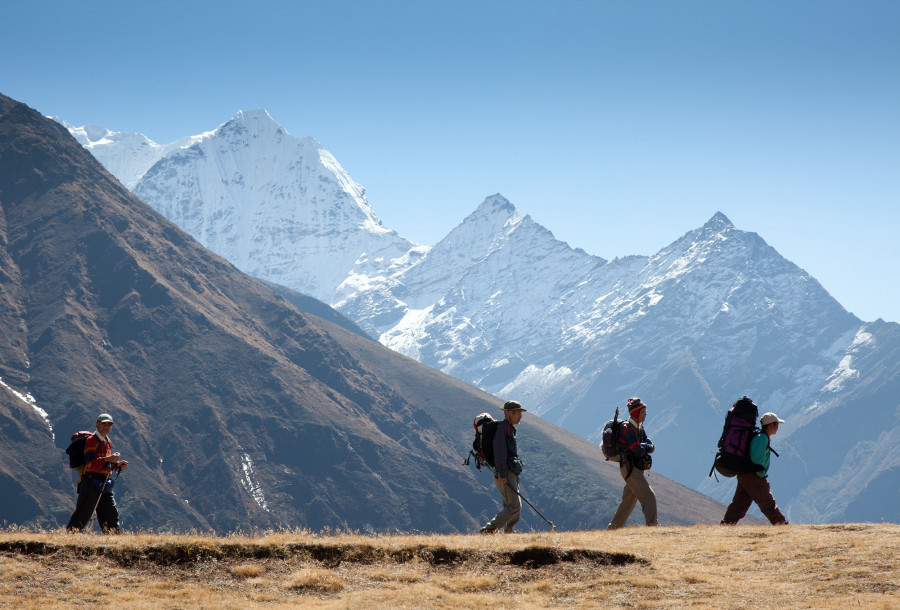Columns
Recovery strategy required
Countries are working to lure back tourists, and Nepal needs to act to not get left behind.
Sanjit Shrestha
As several Covid-19 vaccines roll out, Nepal's devastated tourism industry is seeing light at the end of the tunnel. But the government does not seems to have a recovery strategy, and this worries businesses. Despite opening up the country to vaccinated individuals, the government is yet to methodically act on best practices that are recommended and used by other countries as recovery strategies.
The Nepal government was unable to insulate the tourism industry with subsidies and grants after the lockdown started in March 2020 which resulted in the sector suffering immensely with businesses finding it difficult to repay loans and many workers losing their jobs. As the tourism industry is characterised by many small and medium scale enterprises, these businesses aren’t big enough to handle a crisis situation this prolonged. And because they haven’t received enough support from the government, many are in danger of going bankrupt unless the industry recovers soon.
Although the circulation of the vaccine does build optimism, the government cannot be reticent anymore and needs to create a plan to revive the tourism industry and gain a crucial competitive advantage in the post-pandemic environment. Here are a few strategies that the government can utilise to navigate this uncharted terrain.
Destination image
The most important factor for reviving the tourism industry is marketing Nepal as a safe place to travel. In the post-pandemic tourism industry, safety will be an indispensable aspect of the tourism experience, and those countries that can guarantee this will benefit from the first wave of outbound tourists from all over the globe. For this, the government needs to build protocols, run campaigns and convey purity of destination to ensure Nepal remains a key destination for the pent-up tourism that has built up in the last year. The consequences of the inability to ensure destination purity was shown in Africa, where Ebola affected inbound tourism throughout the continent despite the disease being prevalent in only a few locations.
Travellers will need to be reassured of the safety of travelling, and the Nepal government needs to collaborate with the private sector to put in place new standards in terms of safety, hygiene, testing and procedures. To ensure this information is available to all potential tourists, the government will not only need to circulate timely information through official websites, but also encourage all private companies to provide information through their websites. If tourists can obtain data easily and not be uncertain regarding their predicaments once they travel, confidence can be restored and demand stimulated. Equally, the government needs to take steps to ensure that destination communities are comfortable that the benefits associated with the return of visitors outweigh any concerns over potential health risks.
Tourism requires a dovetailing of many industries; and for a seamless experience, many facets of the industry need to be functioning simultaneously. This has to be delivered by the government and the private sector to ensure whoever travels to Nepal initially will reward the country with excellent reviews which could be the word of mouth social proof that can entice more people to travel to the destination. If one facet of the industry isn’t working, the opening up of the industry might result in disgruntled customers and hinder any further promotional campaigns. Thus, the government needs to ensure adequate supply is present for tourists to enjoy an effortless experience.
Seamless experience
In this regard, president of the Pokhara City Tour Guide Association Krishna Bharati said that many guides switched to other occupations for their livelihood because of the non-existent support of the government during the pandemic. If this trend continues, Nepal might lose the supply of skilled human resources that is necessary for a seamless experience for tourists. The government needs to create a plan to generate adequate supply before inviting tourists to the country.
It is of utmost importance that the government undertakes these strategies to accelerate the recovery in Nepal's tourism industry. The post-pandemic tourism environment will present new challenges for the industry, and the government cannot rationalise indecision in this regard as it may cause the recovery to be weak, resulting in a grave situation for many entrepreneurs in the country. As other inward tourism destinations are promoting their country as a safe haven for travellers, the Nepal government needs to proactively seek counsel from the private sector and policy experts to initiate a coherent recovery strategy. This will raise the chances of a tremendous recovery by absorbing the pent-up tourism that is currently building up all over the world. Inaction can have severe consequences when most other competing countries are improving their odds of success.




 20.52°C Kathmandu
20.52°C Kathmandu















